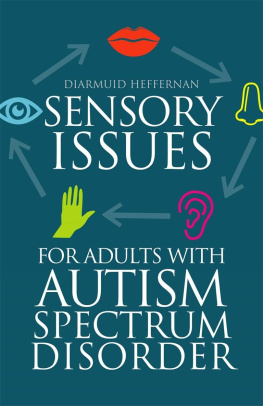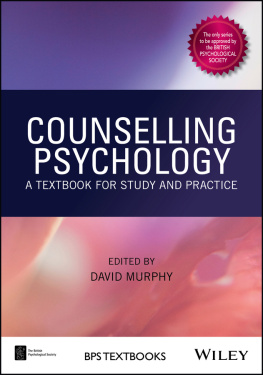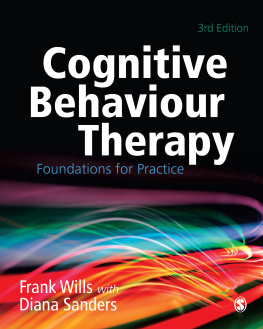OVERCOMING OBSTACLES IN CBT
SAGE has been part of the global academic community since 1965, supporting high quality research and learning that transforms society and our understanding of individuals, groups, and cultures. SAGE is the independent, innovative, natural home for authors, editors and societies who share our commitment and passion for the social sciences.
Find out more at: www.sagepublications.com

Craig Chigwedere, Yvonne Tone, Brian Fitzmaurice & Michael McDonough
OVERCOMING OBSTACLES IN CBT

Craig Chigwedere, Yvonne Tone, Brian Fitzmaurice and Michael McDonough 2012
First published 2012
Apart from any fair dealing for the purposes of research or private study, or criticism or review, as permitted under the Copyright, Designs and Patents Act, 1988, this publication may be reproduced, stored or transmitted in any form, or by any means, only with the prior permission in writing of the publishers, or in the case of reprographic reproduction, in accordance with the terms of licences issued by the Copyright Licensing Agency. Enquiries concerning reproduction outside those terms should be sent to the publishers.
SAGE Publications Ltd
1 Olivers Yard
55 City Road
London EC1Y 1SP
SAGE Publications Inc.
2455 Teller Road
Thousand Oaks, California 91320
SAGE Publications India Pvt Ltd
B 1/I 1 Mohan Cooperative Industrial Area
Mathura Road
New Delhi 110 044
SAGE Publications Asia-Pacific Pte Ltd
3 Church Street
#10-04 Samsung Hub
Singapore 049483
Library of Congress Control Number: 2011929698
British Library Cataloguing in Publication data
A catalogue record for this book is available from the British Library
ISBN 978-1-84920-615-0
ISBN 978-1-84920-616-7 (pbk)
Typeset by C&M Digitals (P) Ltd, Chennai, India
Printed by MPG Books Group, Bodmin, Cornwall
Printed on paper from sustainable resources

To Petronella Chigwedere from all of us
CONTENTS
LIST OF FIGURES
LIST OF TABLES
ABOUT THE AUTHORS
Craig Chigwedere is a cognitive behavioural psychotherapist, clinical lecturer and director of the Foundation Course in CBT at St Patricks University Hospital and Trinity College Dublin. He has many years of experience as a CBT clinician, trainer and supervisor. He trained in CBT at Maudsley Hospital and Institute of Psychiatry, London. His main area of clinical interest is in the field of medically unexplained disorders, where he has been involved in treatment of, and research into, non-epileptic seizures. He has taught and presented at workshops and conferences internationally, as well as being involved in the authoring of peer-reviewed publications in CBT. He is currently involved in research into the utility of self-practice and self-reflection in CBT training.
Yvonne Tone is an experienced cognitive therapist at the Student Counselling Service, Trinity College Dublin. In addition to clinical work, she co-ordinates group therapy development and training. A registered psychiatric and general nurse, she gained valuable mental health experience as Senior Cognitive Behavioural Psychotherapist at St Patricks University Hospital over many years. She completed her MSc in CBT at Trinity in 1999 and devised and facilitated two five-day foundation-level training courses in CBT for nurses in 2005/2006. She was an active committee member, developing the CBT Diploma/Masters course at Trinity College, where she is an honorary lecturer and supervisor. She is a member of BABCP and NABCT and is accredited as a trainer, supervisor and therapist.
Dr Brian Fitzmaurice is the Postgraduate Course Director for the Postgraduate Diploma and MSc in Cognitive Psychotherapy at Trinity College Dublin and also Clinical Senior Lecturer in the School of Medicine. He is a Consultant Psychiatrist and Psychiatric Tutor in Wicklow Mental Health Services. He has special interests in the integration of CBT into community mental health services, early intervention services, medical education and the use of e-learning in healthcare. He has researched, received grants and published papers in these fields. He is a founding director of a campus company ( www.etu.ie ) that uses personalised e-learning to teach communication skills.
Dr Michael McDonough is a full-time consultant psychiatrist and BABCP accredited CBT therapist at St Patricks University Hospital. He is director of the hospitals anxiety disorders service and psychotherapy tutor on the Trinity College Dublin psychiatric training programme. He is honorary clinical lecturer at the Department of Psychiatry, TCD and supervises, examines and teaches on the departments postgraduate CBT courses. He trained in CBT at the Maudsley Hospital and Institute of Psychiatry, London. He has researched and published on a wide range of mental health topics including CBT, anxiety disorders, pharmaco-therapy, medical education and addictions.
ACKNOWLEDGEMENTS
We would like to thank many colleagues, family and friends from whom we have received support, advice and encouragement in the writing of this book. It is not possible to thank everyone by name; however, we would primarily wish to offer our thanks to:
- our partners J, Sean, Alison and Alice and our families for the patience, tolerance, love and support during the writing process;
- our colleagues for their support, stimulating discussions and assistance in the inception and development of this project, the layout of the manuscript, and review and reading of chapters, in particular Colette Kearns, Patricia Maher, Mary McGoldrick, Maria McMorrow, Melissa Hayde and Deirdre Flynn;
- our patients, students and supervisees, from whom we have drawn the inspiration for the vignettes and many of the ideas for the obstacles and hypotheses presented in this book;
- the editorial team at SAGE, in particular Suzanna Trefgarne, Alice Oven and Kate Wharton, and their reviewers, for their support and guidance.
INTRODUCTION
CRAIG CHIGWEDERE, YVONNE TONE, BRIAN FITZMAURICE AND MICHAEL MCDONOUGH
Standard cognitive behavioural therapy (CBT) texts are generally organised around specific disorders with the emphasis on commonalities within those disorders. This is effective when the presenting problem fits neatly into the model and when the patient engages well with therapy and the therapist. This is not always the case. Practising clinicians, trainees and teachers are aware that therapeutic work frequently becomes derailed or stuck at various stages of the process. The likelihood of successfully achieving therapy outcomes is then impeded, causing frustration, distress and confusion for both therapists and those seeking help. Obstacles to progress often connect to recurrent patterns and themes, general and specific, which are embedded in the therapy process.
Therapy is about overcoming difficulties. Therapists and supervisors are therefore routinely challenged to understand and negotiate a wide range of therapeutic obstacles. Cognitive behavioural (psycho)therapy is an established psychotherapeutic modality, with an unrivalled empirical evidence base. It continues to be driven by theorists, researchers and clinicians with a desire to work through evidence-based treatments with clients. Whilst acknowledging the evidence base of CBT and its undoubted importance there is much to be gained from sharing tales from the therapy room.








